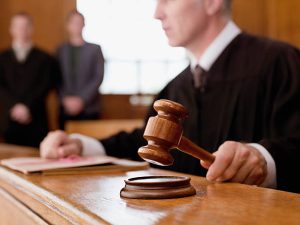
Criminal offenses, including federal, state, and misdemeanors, are subject to a high burden of proof. The burden of proof rests with the prosecutor, who must establish the defendant’s guilt “beyond a reasonable doubt.” This is an extremely high standard, but because it is so high, the defendant frequently has a great chance to fight the charges brought against him. The approach a lawyer takes will have a big influence on the defendant’s case at trial. Additionally, the defense lawyer must be knowledgeable in criminal law and an expert negotiator who understands when to take a case to trial, minimize it, or dismiss it. Obtaining the right criminal lawyer and law firm, like The Office of Andrew Maze, to represent you will help get the best possible outcome.
Basic Steps to the Trial Process
Criminal charges may vary, but generally there are basic steps to the trial process at the federal and state level. These steps are as follows:
- Investigation and charging – After there is an alleged suspect (the U.S. assumes innocence until proven guilty) charged with a crime, a prosecutor will evaluate the case based on direct and circumstantial evidence.
- Arraignment – Once arrested and charged, the accused is arraigned, meaning their rights are read to them and they have the opportunity to plead guilty or not guilty. A judge will then determine whether the defendant will remain in jail or let out on bail. The severity of the crime and the defendant’s resources are taken into account.
If an individual pleads guilty to the crime, a trial will be skipped and the accused will be sentenced.
If the defendant pleads not guilty, the prosecutor must show there is enough evidence to advance onto a trial in a preliminary hearing. The preliminary hearing is like a mini-trial, but without a jury.
The Trial
- Motions Before the Trial – A pre-trial motion is a request for the court to make a decision on a particular issue before the trial begins. Motions, for example, may include a request to dismiss the case, a request to suppress some evidence or information, or a request to change the venue (the location where the trial takes place).
- Trial – The lawyer for the accused and the prosecution prepare for the trial by providing evidence and witnesses. Evidence is shared by a process called, discovery in which both sides are aware of what will be presented.
A trial will include:
- Jury selection (also called the “venire”)
- Opening statements
- Presentation of the case, including witness examinations, physical evidence, and objections
- Closing arguments
- Jury deliberation
- Verdict
The Verdict
- Motions After the Trial – There are several post-trial motions that can be made once there is a conviction. These motions, for example, may include a request for a new trial, a motion for judgment for acquittal, or a request to vacate or correct a sentence.
- Sentencing – Once the defendant is found guilty, a sentence will be imposed based on the severity of the crime.
- Appeal – A guilty defendant can appeal to the court if they believe that the verdict is incorrect or the punishment is too harsh. An appeal is not another trial, but an opportunity to question a possible error that might have occurred during the trial process.
The Trial Process
The trial process is a stressful and difficult time for everyone involved. The defendant and his family are burdened emotionally and financially due to loss of wages and fees. Additionally, preparation can take a long time with many obstacles and setbacks. An understanding of this process and retaining an attorney who is experienced in criminal law can help to alleviate some of the difficulty. The Law Office of Andrew Maze skillfully represents individuals charged with a crime and guides clients through this complicated process.